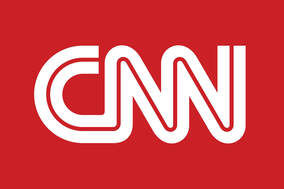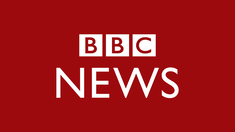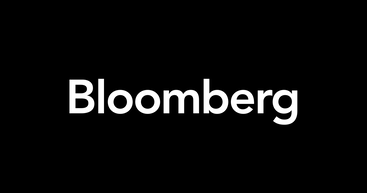|
Sinopharm, a state-controlled company, said its candidate had a 79 percent efficacy rate in interim late-stage trials. But crucial questions remained unanswered. The Chinese government said on Thursday that it had approved a homegrown coronavirus vaccine after an early analysis of clinical trial results showed that it was effective. The announcements sent a positive signal for the global rollout of Chinese vaccines but lacked crucial details. The manufacturer, a state-controlled firm called Sinopharm, said on Wednesday that a vaccine candidate made by its Beijing Institute of Biological Products arm had an efficacy rate of 79 percent based on an interim analysis of Phase 3 trials. Sinopharm said it had filed an application with Chinese regulators to allow the vaccine to be used broadly, and on Thursday the government said the vaccine had been granted conditional approval. If supported, the interim results will bolster claims that Chinese officials have made in recent days that the country’s vaccines are safe and effective. Even before the government issued its official approval, the authorities had already moved ahead with mass vaccinations, defying industry norms. They plan to vaccinate 50 million people in China by mid-February, when hundreds of millions are expected to travel for the Lunar New Year holiday. Read the full article
0 Comments
The private Chinese company Sinovac developed a coronavirus vaccine called CoronaVac. The government of Turkey announced that a trial there showed the vaccine has an efficacy of 91.25%. But Sinovac has yet to share the full details of its research. A Vaccine Made From Coronaviruses CoronaVac works by teaching the immune system to make antibodies against the SARS-CoV-2 coronavirus. The antibodies attach to viral proteins, such as the so-called spike proteins that stud its surface. To create CoronaVac, the Sinovac researchers started by obtaining samples of the coronavirus from patients in China, Britain, Italy, Spain and Switzerland. One sample from China eventually served as the basis for the vaccine. Killing the Virus The researchers grew large stocks of the coronavirus in monkey kidney cells. Then they doused the viruses with a chemical called beta-propiolactone. The compound disabled the coronaviruses by bonding to their genes. The inactivated coronaviruses could no longer replicate. But their proteins, including spike, remained intact. The researchers then drew off the inactivated viruses and mixed them with a tiny amount of an aluminum-based compound called an adjuvant. Adjuvants stimulate the immune system to boost its response to a vaccine. Inactivated viruses have been used for over a century. Jonas Salk used them to create his polio vaccine in the 1950s, and they’re the bases for vaccines against other diseases including rabies and hepatitis A. Prompting an Immune Response Because the coronaviruses in CoronaVac are dead, they can be injected into the arm without causing Covid-19. Once inside the body, some of the inactivated viruses are swallowed up by a type of immune cell called an antigen-presenting cell. Read the full article By Jonathan Corum and Carl Zimmer 12/11/2020 As regulators race to approve Pfizer/BioNTech shot, some other vaccine candidates fall by the waysideRead NowSydney, Australia (CNN)As regulators around the world race to approve the Pfizer/BioNTech coronavirus vaccine, several other vaccine candidates have been ditched or delayed. On Friday, British and French pharmaceutical giants GlaxoSmithKline and Sanofi Pasteur said the release of their vaccine would be pushed to late next year, while one of Australia's four vaccine candidates was axed after trial participants returned false positive test results for HIV. The announcements could present a potential setback in the global effort to gain control of the pandemic, given that experts believe that multiple vaccine options will be required to do so. But there could be a silver lining in stopping a trial, or deciding to move slower in another, as the pace of vaccine development has contributed to concerns in some populations. Read the full article What's the difference between Sinovac and some other vaccines?CoronaVac is an inactivated vaccine, which works by using killed viral particles to expose the body's immune system to the virus without risking a serious disease response. The Moderna and Pfizer vaccines are mRNA vaccines - which means part of the coronavirus' genetic code is injected into the body, triggering the body to begin making viral proteins, but not the whole virus, which is enough to train the immune system to attack. "CoronaVac is a more traditional method [of vaccine] that is successfully used in many well known vaccines like rabies," Associate Prof Luo Dahai of the Nanyang Technological University told the BBC. "mRNA vaccines are a new type of vaccine and there is [currently] no successful example [of them] being used in the population," Prof Luo adds. On paper, one of Sinovac's main advantages is that it can be stored in a standard refrigerator at 2-8 degrees Celsius, like the Oxford vaccine, which is made from a genetically engineered virus that causes the common cold in chimpanzees. Moderna's vaccine needs to be stored at -20C and Pfizer's vaccine at -70C. It means that both Sinovac and the Oxford-AstraZeneca vaccine are a lot more useful to developing countries which might not be able to store large amounts of vaccine at such low temperatures. Read the full article. Reporting by Yvette Tan. The biggest vaccination effort in history has begun. This week, the U.K. was first to clear the use of a new shot from Pfizer Inc. and BioNTech SE. The U.S. will likely do the same, and a separate vaccine from Moderna Inc. is close behind. By the end of 2020, tens of millions of people could be inoculated. Next year: billions more. Bloomberg is tracking nine of the most promising vaccines around the globe, from national procurement deals to shots in patients’ arms. By our count, at least 7.85 billion doses have already been allotted. It’s enough to cover half the world’s population (most vaccines use two doses), if the shots were distributed evenly. That, however, isn’t likely. Rich countries have hedged their bets with extensive supply deals, and ultra-cold storage requirements make some vaccines difficult to deliver to far-flung places. Other countries have struck their own paths: China and Russia authorized their vaccines in July before they’d been fully tested. Including those, a total of five vaccines are now available in limited quantities, in three countries. Read the full article. BRASILIA (Reuters) - A senior Brazilian Health Ministry official said on Tuesday that the ideal vaccine to immunize the country against COVID-19 would be one that could be stored at temperatures of a regular refrigerator and does not require multiple doses.
“Ideally it would be made in a single dose,” said Health Surveillance Secretary Arnaldo Medeiros, although he recognized that was probably not possible. Read the full article |
Details
Categories
All
Archives
June 2024
|
Practical Solutions for complex and urgent global medical problems
© 2024 Refana Inc






 RSS Feed
RSS Feed